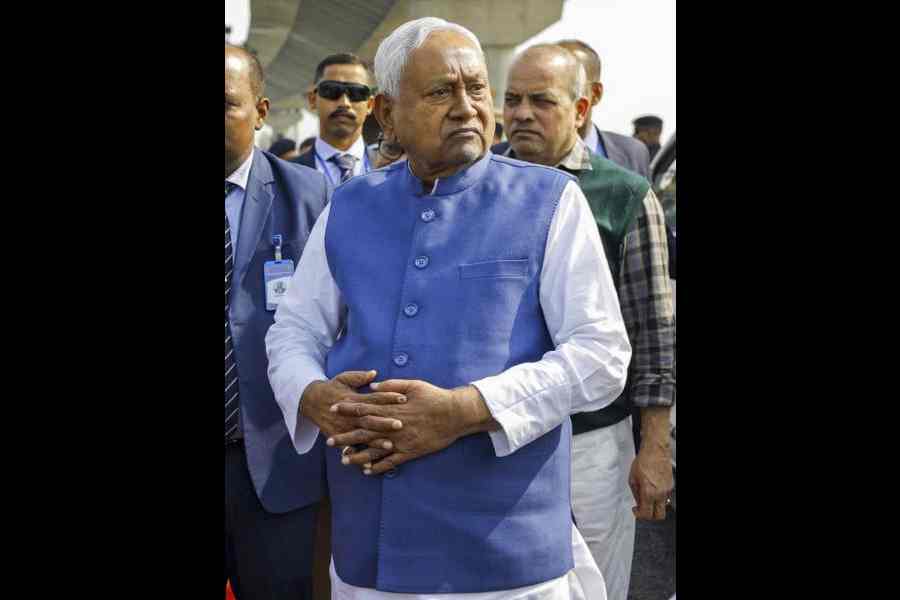The success of India's thriving e-commerce sector is driven by consumer trust, experts said on Wednesday, while stressing the importance of transparency, data security, and good shopping experience in fostering this trust.
The year 2023 marked a crucial turning point for India's e-commerce sector, with notable changes in consumer trends, technology, and regulations.
In a webinar conducted by InGovern Research Services on 'E-commerce Year-Round Up & Safeguarding Customer Interests', experts highlighted how leading e-commerce players prioritise clear communication of policies and product details, invest in stringent data security measures, ensure intuitive user experiences, maintain efficient logistics, and offer responsive customer support channels to enhance customer satisfaction and loyalty.
The webinar was conducted to deliberate on the notable developments in India's e-commerce sector in 2023, with a particular focus on the essential role of customer trust in fuelling its ongoing expansion.
"The customers buy from places which ensure safety, convenience and reliable delivery. Players in India like Amazon, Flipkart and eBay have been able to imbibe a sense of trust with consumers. This will increase GMV (Gross merchandise value) traction for the online shopping space. If you count the sellers of Jio, Tatas, Flipkart, Amazon and eBay, I believe there could be a crore of small sellers out there who can thrive in their business. We must create an enabling mechanism for these sellers to grow," K Giri, Director General Empower India, mentioned during the webinar.
Big e-commerce players like Amazon use advanced AI/ML (Artificial Intelligence/Machine Learning) to combat fake reviews, eliminating 200 million suspected fake reviews from its platform in 2022. In 2023, Amazon invested USD 1.2 billion and employed more than 15,000 people to combat fraud and protect customers.
Small sellers can emulate these strategies by prioritising transparency, investing in basic data security measures, optimising their platforms for user-friendliness, partnering with reliable shipping providers, and providing responsive customer support to build trust and credibility with their customers, said corporate governance advisory firm InGovern Research Services.
While the top e-commerce companies continue to focus on transparency, and providing a greater shopping experience, there is a parallel need for flexible government policies to foster growth, support sellers, and uphold customer interests, it added.
"As India becomes a USD 5 trillion economy, e-commerce will continue to annually grow at about 25 per cent per annum from USD 60 billion in FY2023. E-commerce players are benefiting from huge tailwinds.
“They are responsibly enabling small and medium enterprises to sell not just in India but globally through their global selling programmes. They continue to invest in tools and processes to enhance customer trust," Shriram Subramanian, Founder and MD of InGovern Research Services, said.
According to a joint report by Google, Temasek and Bain & Company, India's internet economy is estimated to reach USD 1 trillion by 2030 from USD 175 billion in 2022. This growth will be fuelled by contributions from the e-commerce space and investment promotion and facilitation agency Invest India expects the sector to be worth USD 325 billion by 2030.
Madhumita Mohanty, Retail Consultant & Educator, said that e-commerce growth in India is driven by mobile phone and internet penetration, increasing aspirations combined with increased disposable incomes, urbanisation and UPI adoption. In addition, a critical growth driver is the increasing demand from Tier 2 and Tier 3 cities, where consumers lack access to diverse brands and products locally.
She added, "Gross merchandises value Quick commerce has shaken up the e-commerce sector as a disruptor model promising faster deliveries." Siju Narayan, Chief Experience Officer of RexEmptorConsult LLP, highlighted that quick commerce's rapid expansion could face challenges when extending across wide product categories. However, this disruptive model is poised for transformation through increased competition, strategic partnerships between players, kirana stores, and larger marketplaces.
Ultimately, quick commerce cannot be viewed in isolation from the entire retail industry's landscape Narayan said, adding that the government should consider conferring industry status to retail so that the current momentum is supported and boosted.
Except for the headline, this story has not been edited by The Telegraph Online staff and has been published from a syndicated feed.











